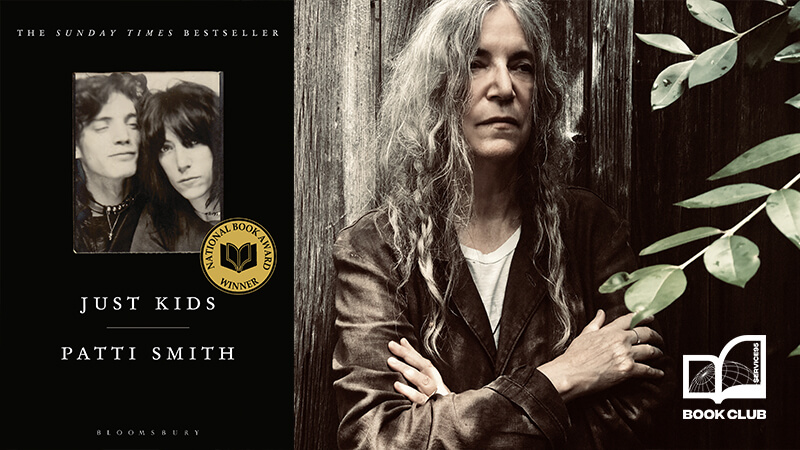Hay Festival Cartagena de Indias’ Latin American Reading List
When Hay Festival invited celebrated Colombian author Gabriel García Márquez to appear at their event in Wales in 2005, he declined due to the long distance. Undeterred, the festival came to him in the form of Hay Festival Cartagena de Indias, which has gone from strength to strength ever since.
The special-edition event continues to this day and has become part of Hay Festival’s global calendar, which also includes festivals and forums in Mexico, Peru, Spain and the US. Here, the international Hay Festival team shares some of their contemporary Latin American literature highlights to inspire, engage and read now…
Abyss – Pilar Quintana (translated by Lisa Dillman)
This is a strikingly vivid novel. Set in Cali, Colombia, the author takes us inside the mind of an eight-year-old girl whose depressed mother spends her days reading celebrity magazines, fixated on women who committed suicide. Quintana leads us brilliantly into the lonely heart of the child we have all once been, driven by fear of abandonment. It reminds us that children are capable of discerning extremely complex realities, even if they cannot fully understand them.
Holiday Heart – Margarita García Robayo (translated by Charlotte Coombe)
Poignant and funny, and with a healthy does of cynicism to boot, Holiday Heart depicts a disintegrating marriage of Colombian immigrants based in the US. Every sentence matters here, as the author explores the disjunction between reality and the idealised pictures of life we might present to the world.
Retrospective – Juan Gabriel Vásquez (translated by Anne McLean)
Here is a sweeping novel that takes in the Spanish Civil War, the Cultural Revolution in China and the guerrilla movements of 1960s Latin America, all through the lens of a single family. A truly international writer, Vásquez explores the way ideologies shift in the public and private spheres.
Tidal Waters – Velia Vidal (translated by Anne McDermott)
It’s a homecoming and a fresh start for the protagonist of Tidal Waters, but things are never as they appear on the surface. Colombian novelist Velia Vidal builds this story through one side of correspondence as our protagonist returns home with ambitious plans to build an arts centre for her community. Under the surface, we have an exploration of community, sex and being a Black woman in Colombia today.
House Of Beauty – Melba Escobar (translated by Elizabeth Bryer)
Enjoy a good thriller? Dive into House of Beauty and discover a world of intrigue from one of Colombia’s most popular contemporary writers. Set in and around a beauty salon in Bogota, this novel ruminates on race and gender politics while delivering twists to keep you glued to its pages.
In The Beginning Was The Sea – Tomás González (translated by Frank Wynne)
Based on a true story, Tomás González’s debut novel follows young intellectuals J. and Elena as they leave behind their comfortable lives, the parties and the money in Medellín to settle down on a remote island. Of course, it all goes wrong. As their ‘good life’ brings small defeats and imperceptible dramas, their paradise gradually turns into hell.
When Women Kill: Four Crimes Retold – Alia Trabucco Zerán (translated by Sophie Hughes)
Witches, hysterics, or femmes fatales – lots of literature struggles to depict women who do bad things. Here, novelist Alia Trabucco Zerán retells the stories of four iconic homicides committed by Chilean women in the 20th century. The non-fiction narrative explores both the crimes but also society’s reaction to them.
Things We Lost In The Fire – Mariana Enríquez (translated by Megan McDowell)
The International Booker Prize-shortlisted writer Mariana Enríquez must make it onto any list of contemporary Latin fiction. Her collection of short stories, Things We Lost In The Fire, is both disturbing and electrifying, with shadows of Shirley Jackson between the lines. Each tale simmers with Argentina’s troubled history. And yet among the haunted houses, dark magic and regrets, there is humour and hope.
You Shall Leave Your Land – Renato Cisneros (translated by Fionn Petch)
Buried secrets rise to the surface in Renato Cisnero’s expertly crafted prequel to his own autobiography. His great-great-grandmother Nicolasa bore seven children by her long-term secret love, who was also her priest, raising them alone in 19th-century Peru. More than a century later, Cisneros plots his attempts at wringing information from his recalcitrant relatives in a tale bound up with the emergence of the Republic of Peru itself.
Empty Houses – Brenda Navarro (translated by Sophie Hughes)
Two women. One missing child. A literary sensation when it was first published in Mexico, Empty Houses unfolds in the aftermath of a child’s disappearance in Mexico City. It is provocative and haunting but expertly told from the two women’s perspectives across a bending timeline. The story poses important challenges to ideas of justice, redemption and the very idea of motherhood.
Lost Children Archive – Valeria Luiselli
Partly inspired by the US policy of separating children from their parents at the Mexican-American border, Lost Children Archive is a compulsive rewrite of the American road novel. Having won the Dublin Literary Award and the Rathbones Folio Prize, and been longlisted for the Booker Prize and the Women’s Prize For Fiction, it lives up to the hype.
Paradais – Fernanda Melchor (translated by Sophie Hughes)
Fellow novelist Mariana Enríquez called this “a short inexorable descent into Hell”, but don’t let that put you off. Paradais explores teenagehood against the explosive fragility of Mexican society. Issues of race, class and violence collide with the myths, desires, and hardships of youth. It’s compelling reading and lingers long after you finish the last page.
Still Born – Guadalupe Nettel (translated by Rosalind Harvey)
Shortlisted for the 2023 International Booker Prize, Still Born tackles the complex decision of whether or not to have children with deftness and subtlety. It is both unsentimental and deeply moving in its plainness. It is a manifesto for choice; something that feels more urgent than ever.
What Goes Unsaid: A Memoir of Fathers Who Never Were – Emiliano Monge (translated by Frank Wynne)
In this fictionalised memoir – about three men who are driven to escape the confines of their traditional lives and roles – Emiliano Monge challenges ideas of inheritance, masculinity and the art of self-deception. It’s funny and direct, offering a freshness lacking on many bookshelves.




